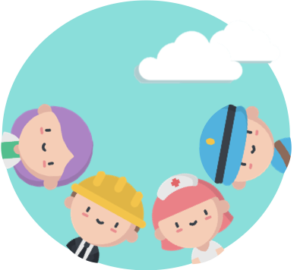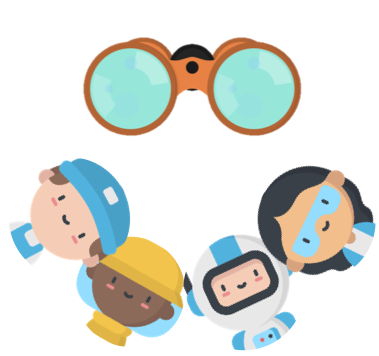Project
An Erasmus+
Strategic Partnership
to improve
career learning
in primary schools.

The project will work to create a set of innovative resources with the aim of preventing Early School Leaving and empowering pupils to design their future.
Why are there about 4 millions of young people in Europe who are not engaged in education, training or employment?
How to help children broaden their aspirations and develop the skills they will need for their career development?
Starting career education
early is crucial!
Holding biased assumptions
and having narrow
aspirations can impact
the whole story of a child!

Marcela Calineci, Romania
Psychologist, CMBRAE

3 OBJECTIVES:
- 1. To Develop resources and models to improve career learning in primary schools in Europe.
- 2. To reduce Early School Leaving and educational disengagement in European countries.
- 3. To promote relationships between different stakeholders involved in career guidance at a local, national and European level.
THE PROJECT OUTPUTS:
The project aims to reach its objective with the creation of 6 intellectual outputs:
-
1. CAREER MANAGEMENT SKILLS -
A methodological framework for career learning at school. -
2. CAREER TEACHING - A training course to help teachers improve career learning at school.
- 3. DESIGN MY FUTURE - Career learning units and videotutorials for teachers and school counsellors to use with pupils.
- 4. JOBLAND - Educational game for schools to help children explore careers and develop career management skills.
- 5. CAREER LEARNING AT SCHOOL - Handbook for teachers and practitioners on career learning in primary schools with materials for activities.
- 6. JOBLAND DAY - A virtual training seminar all over Europe on career learning in primary schools.
THE PROJECT TIMELINE:
FLORENCE
January 2019
BARCELONA
April 2019
AARTHUS
October 2019
BUCHAREST
July 2020
JOBLAND DAY
September 2020
METHODOLOGY:
In order to promote social innovation processes, the project adopts the methodology of “participatory action research”. Local and regional networks of schools and other stakeholders are actively involved and are invited to participate in local working groups and pilot actions to directly contribute to the creation of the project outputs.

